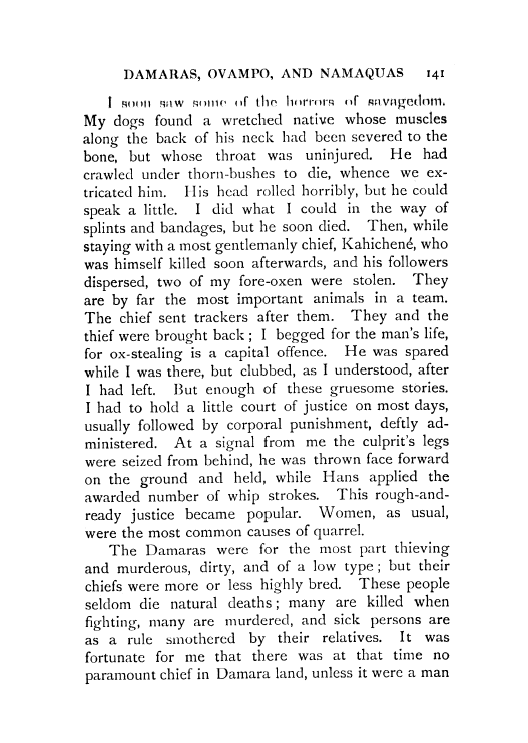DAMARAS, OVAMPO, AND NAMAQUAS 141 fwml s.1W C;I)IIIv (if tfir II(II-1-m-s (if F4;IVtIgV_dotII,
My dogs found a wretched native whose muscles along the back of his neck had been severed to the bone, but whose throat was uninjured. He had crawled under thorn-bushes to die, whence we extricated him. His head rolled horribly, but he could speak a little. I did what I could in the way of splints and bandages, but he soon died. Then, while staying with a most gentlemanly chief, Kahichen6, who was himself killed soon afterwards, and his followers dispersed, two of my fore-oxen were stolen. They are by far the most important animals in a team. The chief sent trackers after them. They and the thief were brought back; I begged for the man's life, for ox-stealing is a capital offence. He was spared while I was there, but clubbed, as I understood, after I had left. But enough of these gruesome stories. I had to hold aa little court of justice on most days, usually followed by corporal punishment, deftly administered. At a signal from me the culprit's legs were seized from behind, he was thrown face forward on the ground and held, while Hans applied the awarded number of whip strokes. This rough-andready justice became popular. Women, as usual, were the most common causes of quarrel.
The Damaras were for the most part thieving
9
and murderous, dirty, and of a low type ; but their chiefs were more or less highly bred. These people seldom die natural deaths; many are killed when fighting, many are murdered, and sick persons are as a rule smothered by their relatives. I t was fortunate for me that there was at that time no paramount chief in Damara land, unless it were a man

